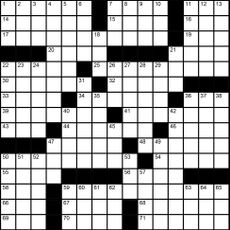Iran’s divisive election
Mahmoud Ahmadinejad was reelected, but many Iranians smell a rat.
Elections have always been “scripted charades” in Iran, said Amir Taheri in The Wall Street Journal, but Iranian President Mahmoud Ahmadinejad's reelection on Friday was particularly “dubious.” The signs of fraud—a too-quick tally of votes, an unrealistic 62.6 percent—caused many Iranians, including clerics, to protest the election as “a putsch by the military-security organs” that backed Ahmadinejad over ex–Prime Minister Mir Hossein Mousavi. So much for the hope that a repressive theocracy will accept the will of the people.
Don’t be so quick to yell fraud, said Ken Ballen and Patrick Doherty in The Washington Post. The Western media portrayed Iranians as “enthusiastic” about Mousavi, but our “scientific sampling” of voters across Iran showed Ahmadinejad leading by more than 2 to 1. Mousavi, in fact, was more popular only among university students, graduates, and the wealthy. So the election results may actually “reflect the will of the Iranian people.”
Iran is at best a “managed democracy,” so the people’s will is heavily filtered, when solicited at all, said Anne Applebaum in Slate. But even the most heavily managed election is “ultimately uncontrollable,” and the “whiff of fraud” opened a new crack in Iran’s “passive society,” leading to the biggest wave of protests in a decade. Even if the election results are “farcical,” they show that “a bad election is better than none at all.”
Subscribe to The Week
Escape your echo chamber. Get the facts behind the news, plus analysis from multiple perspectives.

Sign up for The Week's Free Newsletters
From our morning news briefing to a weekly Good News Newsletter, get the best of The Week delivered directly to your inbox.
From our morning news briefing to a weekly Good News Newsletter, get the best of The Week delivered directly to your inbox.
Sign up for Today's Best Articles in your inbox
A free daily email with the biggest news stories of the day – and the best features from TheWeek.com
Create an account with the same email registered to your subscription to unlock access.
-
 Magazine interactive crossword - May 3, 2024
Magazine interactive crossword - May 3, 2024Puzzles and Quizzes Issue - May 3, 2024
By The Week US Published
-
 Magazine solutions - May 3, 2024
Magazine solutions - May 3, 2024Puzzles and Quizzes Issue - May 3, 2024
By The Week US Published
-
 Magazine printables - May 3, 2024
Magazine printables - May 3, 2024Puzzles and Quizzes Issue - May 3, 2024
By The Week US Published
-
 Arizona court reinstates 1864 abortion ban
Arizona court reinstates 1864 abortion banSpeed Read The law makes all abortions illegal in the state except to save the mother's life
By Rafi Schwartz, The Week US Published
-
 Trump, billions richer, is selling Bibles
Trump, billions richer, is selling BiblesSpeed Read The former president is hawking a $60 "God Bless the USA Bible"
By Peter Weber, The Week US Published
-
 The debate about Biden's age and mental fitness
The debate about Biden's age and mental fitnessIn Depth Some critics argue Biden is too old to run again. Does the argument have merit?
By Grayson Quay Published
-
 How would a second Trump presidency affect Britain?
How would a second Trump presidency affect Britain?Today's Big Question Re-election of Republican frontrunner could threaten UK security, warns former head of secret service
By Harriet Marsden, The Week UK Published
-
 'Rwanda plan is less a deterrent and more a bluff'
'Rwanda plan is less a deterrent and more a bluff'Instant Opinion Opinion, comment and editorials of the day
By The Week UK Published
-
 Henry Kissinger dies aged 100: a complicated legacy?
Henry Kissinger dies aged 100: a complicated legacy?Talking Point Top US diplomat and Nobel Peace Prize winner remembered as both foreign policy genius and war criminal
By Harriet Marsden, The Week UK Last updated
-
 Trump’s rhetoric: a shift to 'straight-up Nazi talk'
Trump’s rhetoric: a shift to 'straight-up Nazi talk'Why everyone's talking about Would-be president's sinister language is backed by an incendiary policy agenda, say commentators
By The Week UK Published
-
 More covfefe: is the world ready for a second Donald Trump presidency?
More covfefe: is the world ready for a second Donald Trump presidency?Today's Big Question Republican's re-election would be a 'nightmare' scenario for Europe, Ukraine and the West
By Sorcha Bradley, The Week UK Published